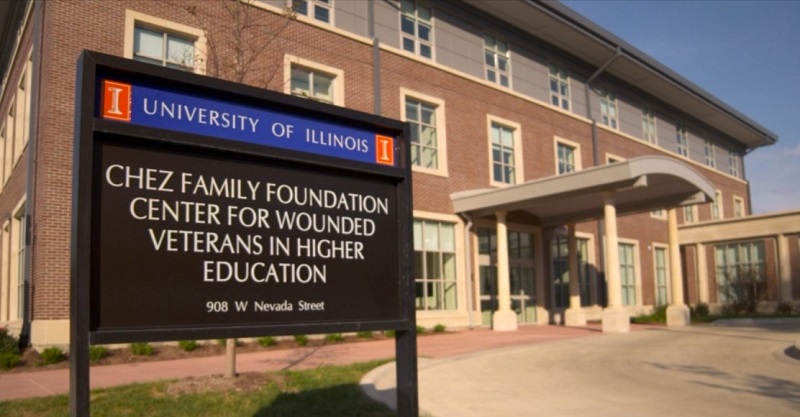BTN.com staff, January 28, 2016
During football and basketball games, BTN LiveBIG will spotlight notable examples of research, innovation and community service from around the conference. In-Game stories will provide more background on these features, and the opportunity to view the videos again.
The first fixed-route buses with wheelchair lifts?
The first college-level adaptive sports and recreation program?
The first - and still the only - residential program to serve students with severe disabilities who require assistance with tasks of daily life?
When it comes to providing an accessible and equal learning environment for all students, the University of Illinois is an institution of firsts. And, when it comes to helping our nation?s wounded veterans adjust from military to collegiate life, it?s no different.
?In 1948, [UIUC] opened the first facility to accommodate WWII veterans who had returned with disabilities,? said Dr. Tanya Gallagher, dean of UIUC?s College of Applied Sciences. ?We had a founder [Dr. Timothy Nugent] who believed that veterans should be able to use the GI Bill to advance their education, and they really weren?t able to do that because there were not accommodations.?
What started in a former VA hospital in Galesburg, Ill., has blossomed into a commitment to provide equal educational opportunities for those who served in uniform. In 2015, that commitment was given renewed vision in the form of the Chez Family Foundation Center for Wounded Veterans.
?It became clear that we needed to step up again,? added Gallagher, whose college oversees disability accommodations across campus, including at the Center. ?We needed a state-of-the-art facility that really had comprehensive and individualized services that would meet the challenges that these veterans were facing.?
A one-stop shop, the center offers academic, counseling, rehabilitation and career services. The top floor contains a fully-accessible dormitory with room for 14 residents. The lower floors house multiple computer labs, studies spaces, recreational areas and physical-therapy suites.
Having everything a disabled veteran entering the university might need in a single location is an important part of the Center?s design.
[btn-post-package]?The military is unit-based,? explained retired Army Sergeant Garrett Anderson Jr., a graduate student/ assistant at the Center who lost his right arm, among other injuries, in Iraq. ?We?re giving you a new unit to be established with and to feel comfortable with.?
That sentiment is echoed by interim director Dr. Nicholas Osborne, U.S. Coast Guard (retired), who says that one of the Center?s greatest strengths is the sense of community and belonging. But, Osborne added that despite all the accomplishments, the Center is still in its early stages.
?Let?s call this Phase 1: We?re building the relationships with the students,? he said. ?But I think that we have unbounded possibilities for what we?re going to evolve into. Ideally, we?re going to be the national resource leader.?
By John Tolley








